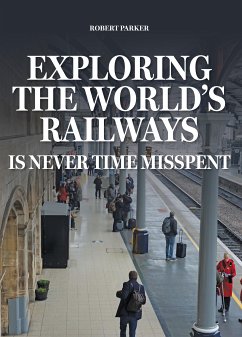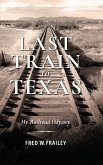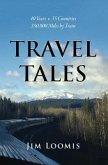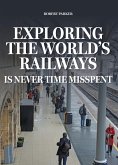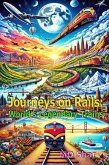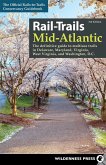Much of it is to do with the railway itself: the type of rolling stock in use, the signalling on the line, civil engineering features. Also operating detail: methods of station working to minimise train dwell time in the platform, operation of doors, revenue protection measures and so on.
Then there is the world outside the railway: the towns and cities passed through, the nature of the countryside - from the manicured pastures and arable of the lowlands to the majesty and grandeur of highland scenery. The railway itself, of course, helped form that landscape: transporting the fuel and raw materials to build the towns and cities and becoming a feature of the rural scene.
Sometimes the railway is but a barely distinguishable mark, a cutting topped with scrub and trees. Elsewhere it can be a major feature of the scene: think of the Forth Bridge north of Edinburgh, or Ribblehead Viaduct on the Settle and Carlisle line.
Indeed, often there is so much to see outside the train that it can be surprising that any traveller can find diversion on a screen or a printed page preferable to looking out of the train window. How can anyone fail to be impressed by the grace and grandeur of Brunel's genius construction when passing in a train over the Tamar Bridge linking Devon and Cornwall, for instance? Or, to draw an example from our own generation, just open your eyes to the technical prowess that has forged the Elizabeth line under London, with computer-controlled trains stopping with precision to line up with platform screen doors deep beneath the streets of the capital.
In this collection of tales from journeys around the railway system both in the UK and abroad, Robert Parker manages to capture the magic of rail travel. To be sure, not everything always goes to plan on his journeys, but that is half of the fun of it. How he and his pals manage to escape from the many scrapes they get into makes for fascinating reading! A sound knowledge of the timetable certainly helps, although in recent years we have gained the assistance of mobile phones and realtimetrains.co.uk to help replan a travel day on the hoof.
What shines through in this book is Robert's love of, and respect for, the railway. Our mode of transport remains one of the most enjoyable and environmentally friendly ways of getting from A to B: long may it prosper. Take delight in the travels recorded in this book from the comfort of your own armchair, then indulge in the real thing yourself!
James Abbott, Consultant Editor, Modern Railways
Dieser Download kann aus rechtlichen Gründen nur mit Rechnungsadresse in A, B, BG, CY, CZ, D, DK, EW, E, FIN, F, GR, H, IRL, I, LT, L, LR, M, NL, PL, P, R, S, SLO, SK ausgeliefert werden.

